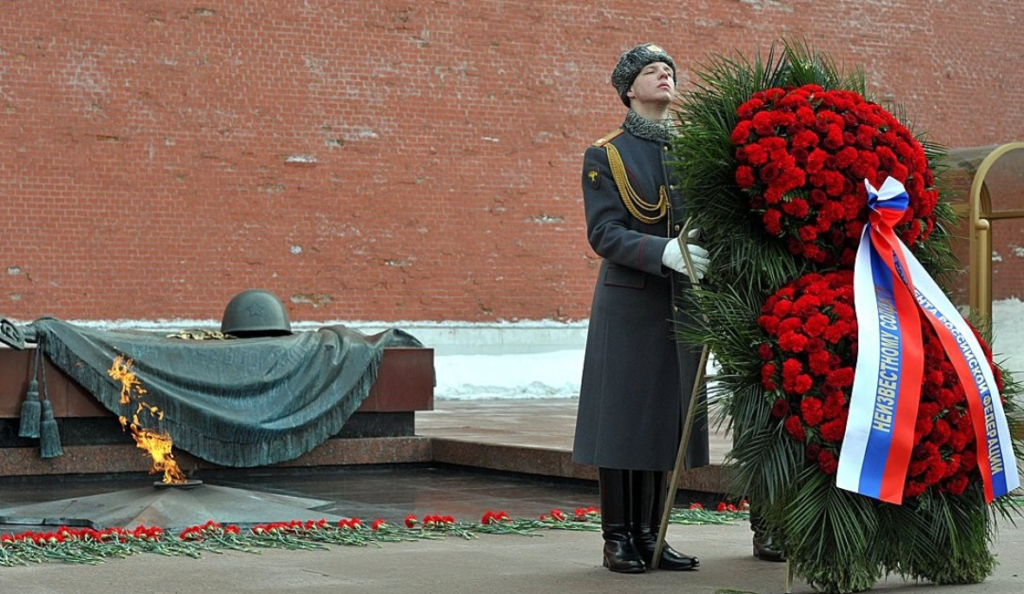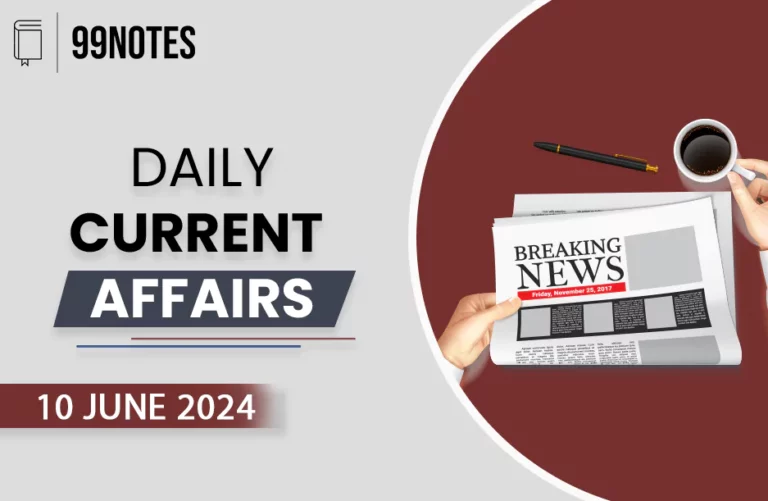10 July 2024 : PIB Summary For UPSC
1. Prime Minister receives Russia’s highest State Award
(Source – https://pib.gov.in/PressReleseDetail.aspx?PRID=2031894 )
| Topic: GS2 – International Relations – Bilateral Relations |
| Context |
|
Analysis of the news:
- President Vladimir Putin awarded Prime Minister Narendra Modi Russia’s highest national honour, “The Order of St. Andrew the Apostle”.
- The award recognizes Modi’s efforts in strengthening India-Russia relations.
- The award was announced in 2019 and presented in St. Andrew Hall in the Kremlin.
- Modi dedicated the award to the people of India and the traditional India-Russia friendship.
- He highlighted that the award signifies the Special and Privileged Strategic Partnership between the two nations.
- Instituted over 300 years ago, Modi is the first Indian leader to receive this honour.
2. Prime Minister pays tribute at the ‘Tomb of the Unknown Soldier’ in Moscow
(Source – https://pib.gov.in/PressReleseDetail.aspx?PRID=2031690 )
| Topic: GS2 – History, GS2 – International Relations |
| Context |
|

Tomb of the Unknown Soldier:
- The Tomb of the Unknown Soldier is a war memorial located at the Kremlin wall in Moscow, Russia.
- It honours the Soviet soldiers who lost their lives during World War II.
- The memorial was inaugurated on May 8, 1967, to mark the 22nd anniversary of the Soviet victory over Nazi Germany.
- An eternal flame burns at the site, symbolising everlasting remembrance.
- A guard of honour from the Kremlin Regiment is stationed at the tomb.
- The tomb features an inscription reading “Your name is unknown, your deed is immortal.”
- It is a significant site for official ceremonies and state visits, where dignitaries pay their respects.
3. XVI Finance Commission constitutes Advisory Council
(Source – https://pib.gov.in/PressReleseDetail.aspx?PRID=2031877 )
| Topic: GS2 – Indian Polity – Constitutional Bodies |
| Context |
| The Sixteenth Finance Commission formed an Advisory Council, with Dr. Poonam Gupta as Convenor, to advise on Terms of Reference, assist in research, and adopt best practices to enhance fiscal devolution and the quality of the Commission’s recommendations. |
Analysis of the news:
- The Sixteenth Finance Commission has established an Advisory Council.
- Members include:
- Dr. D.K. Srivastava
- Mr. Neelkanth Mishra
- Dr. Poonam Gupta
- Ms. Pranjul Bhandari
- Mr. Rahul Bajoria
- Dr. Poonam Gupta will serve as the Convenor of the Advisory Council.
- The Council’s roles and functions are:
- Advising the Commission on any Terms of Reference (ToR) or related relevant subjects.
- Assisting in the preparation of papers or research studies.
- Monitoring or assessing studies commissioned by the Finance Commission.
- Enhancing the Commission’s understanding of the issues within its ToR.
- Broadening the Commission’s scope by seeking best national and international practices.
- Focusing on matters related to fiscal devolution.
- Improving the quality, reach, and enforcement of the Commission’s recommendations.
| Finance Commission |
|
Purpose and Establishment:
Article 280:
Article 281: The President must present the Commission’s recommendations and explanatory memorandum to Parliament. Functions:
Powers:
Advisory Role:
|
| PYQ: How is the Finance Commission of India constituted? What do you know about the terms of reference of the recently constituted Finance Commission? Discuss. (250 words/15m) (UPSC CSE (M) GS-2 2018) |
| Practice Question: Explain the constitutional provisions governing the establishment, composition, and functions of the Finance Commission of India. How does the Commission contribute to fiscal federalism in the country? (150 Words /10 marks) |
4. National Commission for Minorities advises States/UTs to hold “SARVA DHARMA MEETING” to protect and safeguard the interests of all Minorities
(Source – https://pib.gov.in/PressReleseDetail.aspx?PRID=2031933 )
| Topic: GS2 – Indian Polity – Statutory Bodies |
| Context |
|
National Commission for Minorities:
- Establishment and Composition:
- Established in 1992 under the National Commission for Minorities Act, the Commission comprises a Chairperson, Vice-Chairperson, and five Members nominated by the Central Government, with at least five members from minority communities.
- Functions and Responsibilities:
- Evaluates minority development progress.
- Monitors safeguard implementation.
- Makes recommendations to the Central and State governments.
- Conducts research on socio-economic and educational issues.
- Addresses specific minority rights complaints.
- Submits periodic reports to the government on minority difficulties.
- Powers of the Commission:
- Empowered with civil court-like authority for summoning, evidence collection, and document requisition.
- Government Responsiveness:
- Central and State governments must respond to NCM’s recommendations, explaining actions taken or reasons for non-acceptance.
- Challenges:
- Human resource deficiencies and staffing inconsistencies.
- Financial constraints affecting research and operational efficacy.
- Limited integration with state-level minority commissions.
- Limited legal authority compared to judicial oversight.
- Basic technological utilisation.
- Recommendations for Improvement:
- Implement outcome-based performance metrics.
- Strengthen state-level commissions for better integration and effectiveness.
- Upgrade technological infrastructure for efficiency.
- Set targets to manage case pendency effectively.
The NCM plays a crucial role in safeguarding minority interests in India, though it faces operational challenges that could be addressed through structural reforms and enhanced governmental support.
| Practice Question: Discuss the role and challenges of the National Commission for Minorities (NCM) in India. How can its effectiveness be enhanced through reforms and better governmental support? (250 Words /15 marks) |



